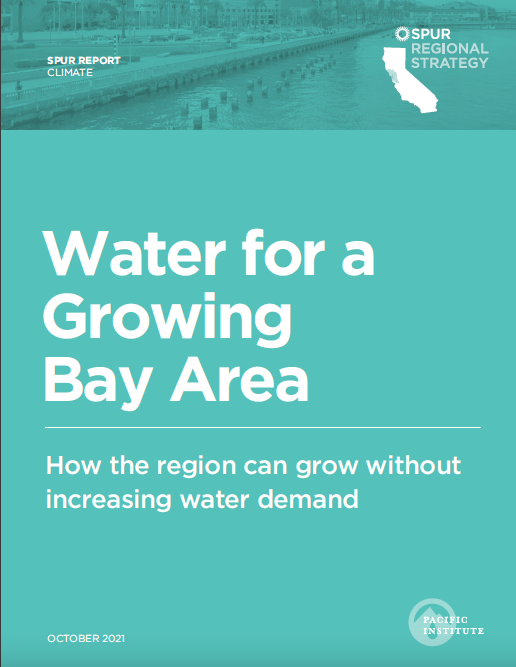Water for a Growing Bay Area: How the Region Can Grow Without Increasing Water Demand

Water for a Growing Bay Area: How the Region Can Grow Without Increasing Water Demand
Overview
The San Francisco Bay Area is projected to add two million jobs by 2070, attracting millions more people. To prevent housing from becoming even more unaffordable, the region needs to build 2.2 million new housing units. But the rivers the Bay Area relies on to supply much of its water are already at a breaking point, upstream communities are suffering from a degraded environment, and climate change is likely to make the water supplies even more unpredictable. How can the Bay Area grow and build the housing it needs without taking more water from the environment?
This report shows that the Bay Area can add two million jobs, 6.8 million people, and 2.2 million homes by 2070 and offset all water use from this growth in two ways: through modest improvements in water use efficiency and by locating new growth in areas that are already developed, known as infill locations. The report also lays out key recommendations for how policy-makers can rise to this opportunity, with a focus on managing water demand with conservation and efficiency, pursuing compact land use strategies with a high share of multifamily housing, and strengthening mechanisms for sharing water regionally.
The report was produced by SPUR in partnership with the Pacific Institute.
In This Series
Case Study: “Capturing Stormwater to Diversify Water Supplies”
Case Study: “Scaling Up Centralized Water Recycling”
Case Study: “Water-Wise Development on a Corporate Campus”
Case Study: “Protecting Groundwater Through Open Space Conservation”
Case Study: “Water Offsets as a Strategy to Grow in a Water-Scarce Environment”
Case Study: “Water Efficiency and Reuse in Affordable Housing”
Resources
Appendix A: Indoor Residential Water Use
Appendix B: Outdoor Residential Water Use
Appendix C: Commercial, Industrial, and Institutional Water Use

